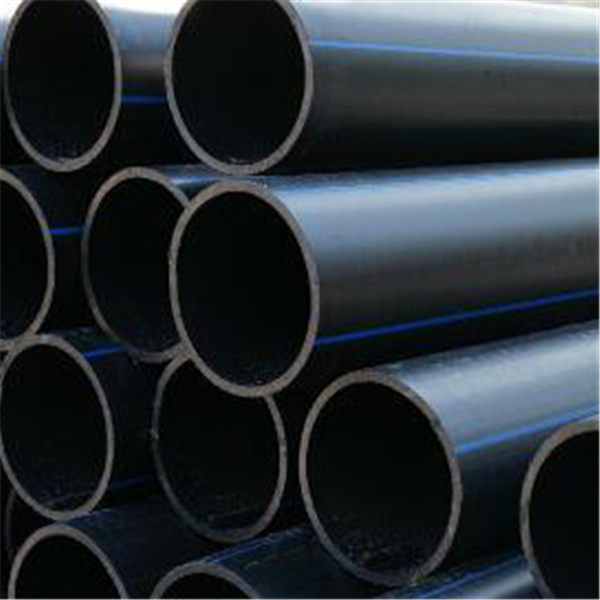Dec . 20, 2024 02:12 Back to list
hdpe irrigation pipe
The Benefits of HDPE Irrigation Pipes
Irrigation is an essential part of modern agriculture, ensuring that crops receive the water they need to thrive, especially in areas where rainfall is insufficient. One of the most effective and durable options for irrigation systems is High-Density Polyethylene (HDPE) piping. Known for its strength, versatility, and longevity, HDPE irrigation pipes have become increasingly popular among farmers and agricultural businesses. In this article, we will explore the advantages of using HDPE irrigation pipes, their applications, and the long-term benefits they provide to both crops and the environment.
What is HDPE?
High-Density Polyethylene (HDPE) is a thermoplastic polymer made from petroleum. It is known for its high strength-to-density ratio, making it a popular choice in various industries. When it comes to irrigation, HDPE is particularly favored due to its excellent chemical resistance, low moisture absorption, and ability to withstand high temperatures. Additionally, HDPE is lightweight and flexible, which makes it easy to transport and install.
Advantages of HDPE Irrigation Pipes
1. Durability and Longevity One of the standout features of HDPE irrigation pipes is their durability. Unlike traditional materials such as PVC or metal, HDPE does not corrode or degrade over time. This means that once installed, an HDPE irrigation system can last for decades with minimal maintenance. This durability translates to cost savings for farmers, as they can avoid frequent replacements and repairs.
2. Resistance to Chemicals and UV Rays Agriculture often involves the use of fertilizers and pesticides that can be harsh on irrigation materials. HDPE pipes resist chemical damage, ensuring that the integrity of the irrigation system remains intact. Additionally, HDPE's resistance to UV rays prevents deterioration due to sun exposure, making it suitable for both above and below-ground installations.
hdpe irrigation pipe

3. Flexibility and Lightweight The lightweight nature of HDPE makes it convenient for transport and installation. Farmers can easily handle and lay these pipes without the need for heavy machinery. The flexibility of HDPE also allows it to bend and curve, enabling it to fit into a variety of landscapes and terrains, which is particularly advantageous for irregularly shaped fields.
4. Reduced Leakage and Water Loss HDPE irrigation pipes are designed to create a tight seal, which minimizes leaks. In agriculture, efficient water use is crucial, and any loss of water can impact crop yield. By using HDPE pipes, farmers can ensure that they deliver the maximum amount of water directly to their crops, reducing waste and enhancing overall irrigation efficiency.
5. Environmental Benefits As the world faces increasing water scarcity, it is essential to utilize resources wisely. HDPE irrigation systems promote efficient water usage, helping to conserve this precious resource. Furthermore, HDPE is recyclable, allowing for a sustainable approach to irrigation infrastructure. Farmers can contribute to environmental conservation by opting for materials that have a lower ecological footprint.
Applications of HDPE Irrigation Pipes
HDPE irrigation pipes are versatile and can be used in various agricultural settings. These pipes are suitable for drip irrigation systems, sprinkler systems, and even subsurface irrigation. Whether used in small gardens or large-scale agricultural operations, HDPE pipes can be tailored to meet the specific needs of different crops and soil types.
Conclusion
In conclusion, HDPE irrigation pipes present numerous advantages that make them a superior choice for modern agricultural practices. Their durability, resistance to chemicals, flexibility, and efficiency in water delivery align perfectly with the needs of farmers today. As we move towards more sustainable agricultural methods, the adoption of HDPE pipes is likely to increase, helping to conserve water and reduce costs for farmers while promoting healthy crop growth. By choosing HDPE irrigation pipes, agricultural professionals can ensure that they are making a wise investment in their farming practices and the future of food production. This shift not only benefits the economic aspects of farming but also supports environmental sustainability, paving the way for a greener tomorrow.
-
Durable PP Rigid Sheet: Lightweight, Chemical Resistant Solutions
NewsAug.21,2025
-
PVC Grey Sheet for Extraction: Chemical Resistant & Durable
NewsAug.19,2025
-
Durable PVC Pipe Fittings for Plumbing & Irrigation Needs
NewsAug.18,2025
-
HDPE Steel Belt Reinforced Spiral Corrugated Pipe | High Strength
NewsAug.17,2025
-
HDPE Pipe Fittings: Durable, Leak-Proof Solutions
NewsAug.16,2025
-
Premium CPVC Sheet: High-Temp & Chemical Resistant Solutions
NewsAug.15,2025

